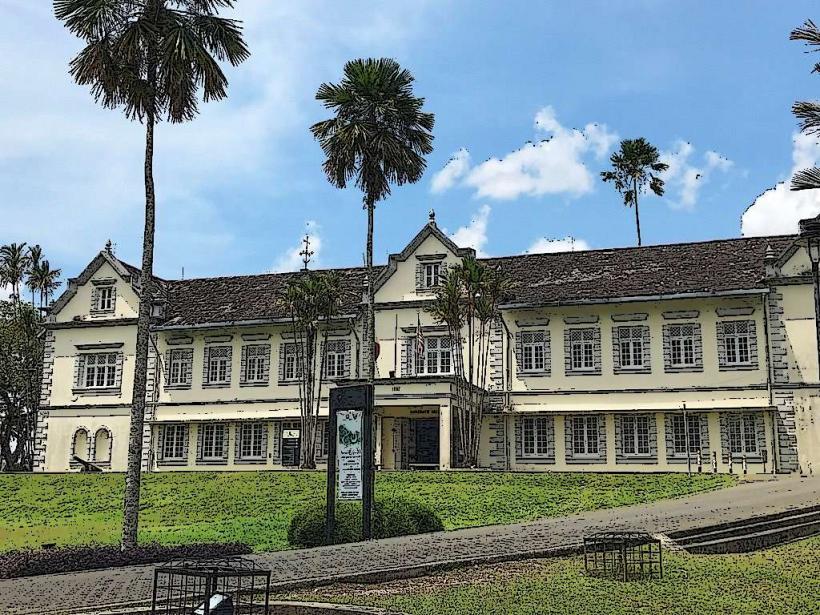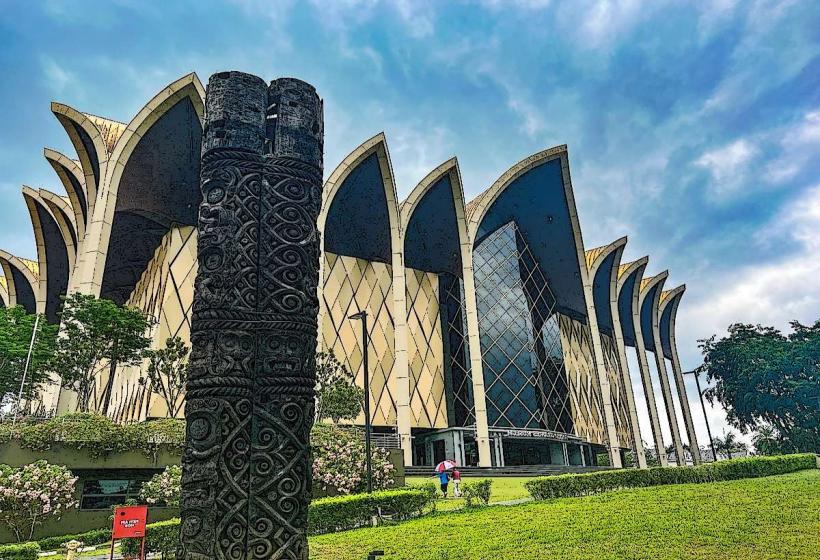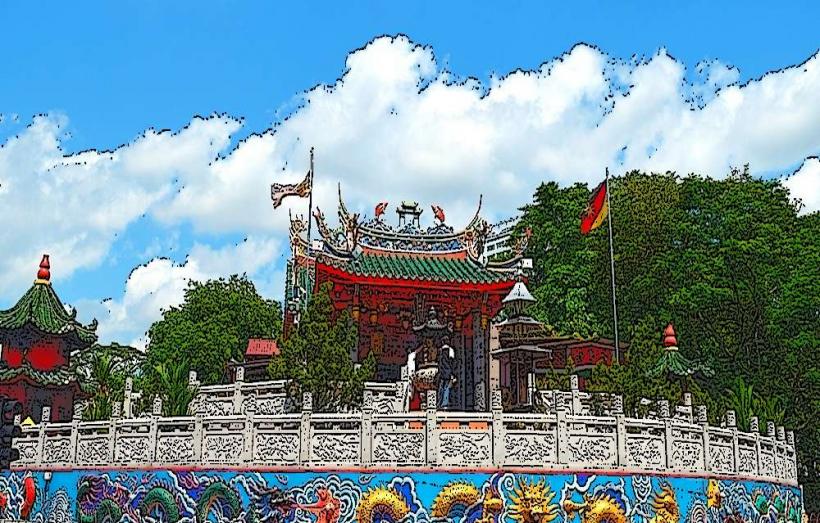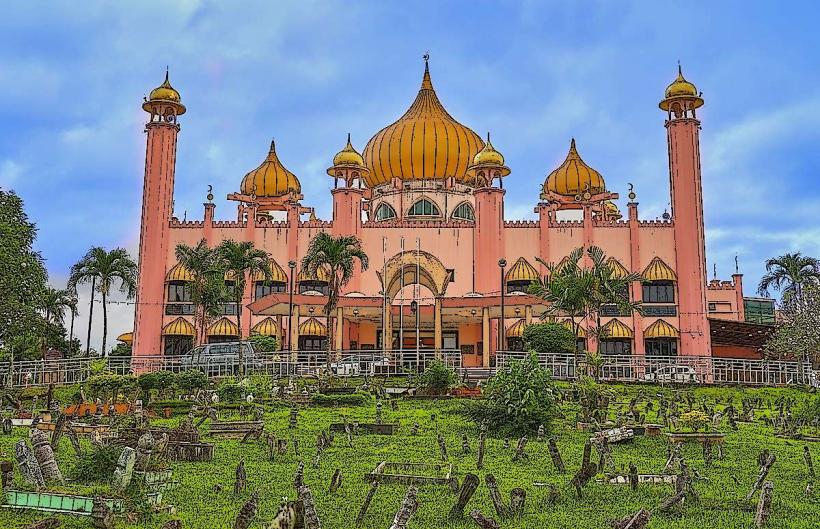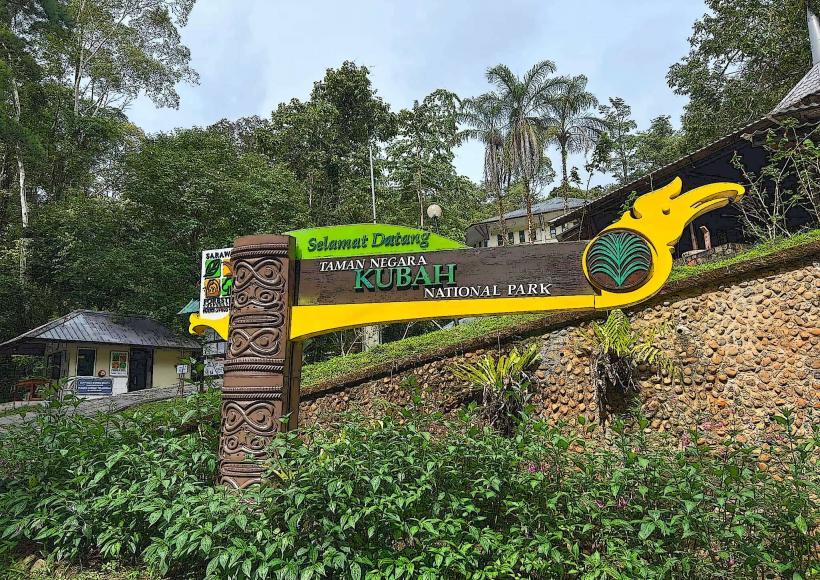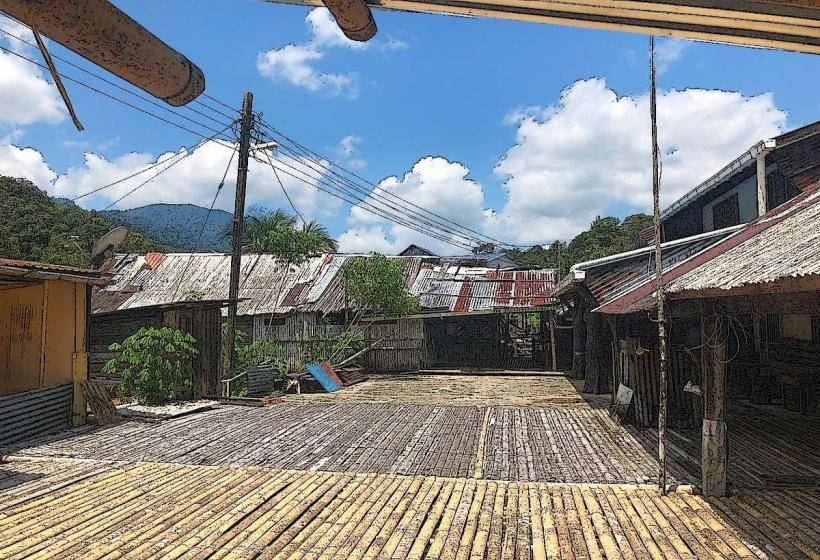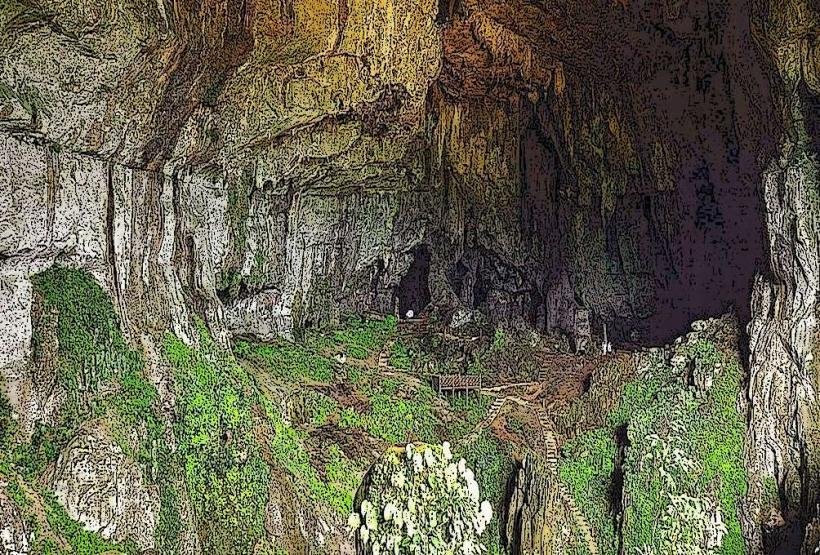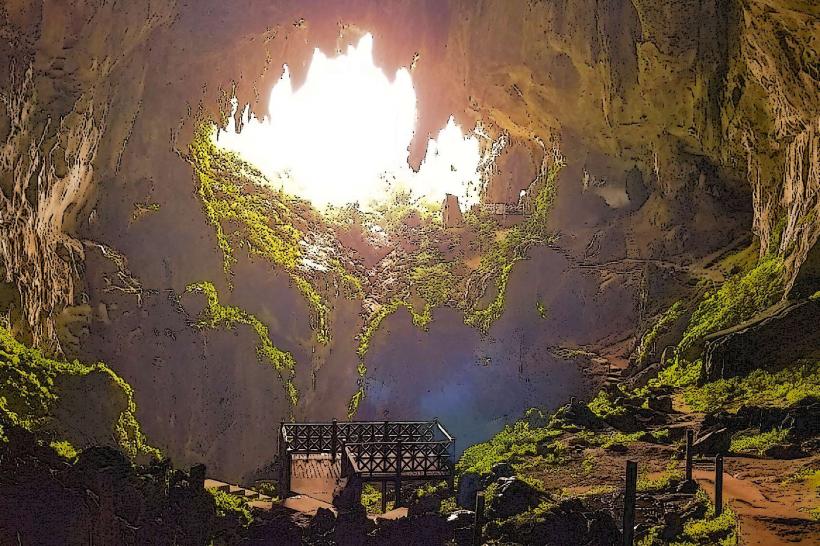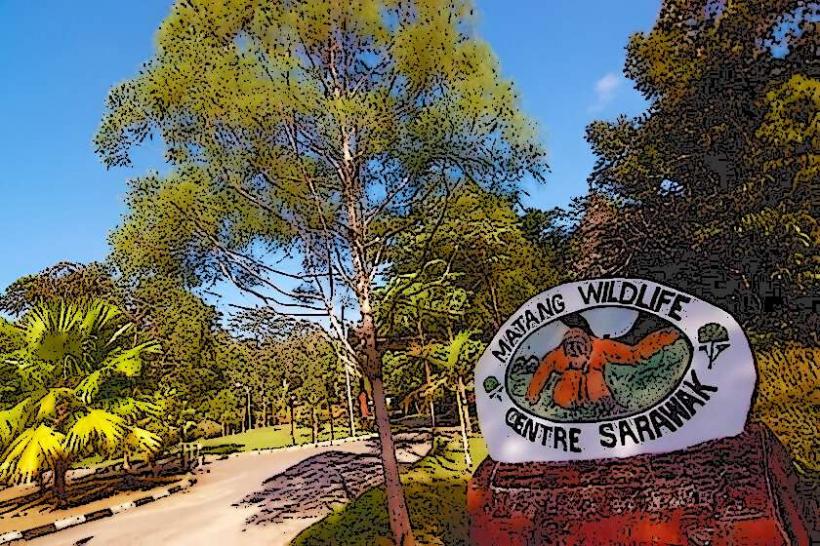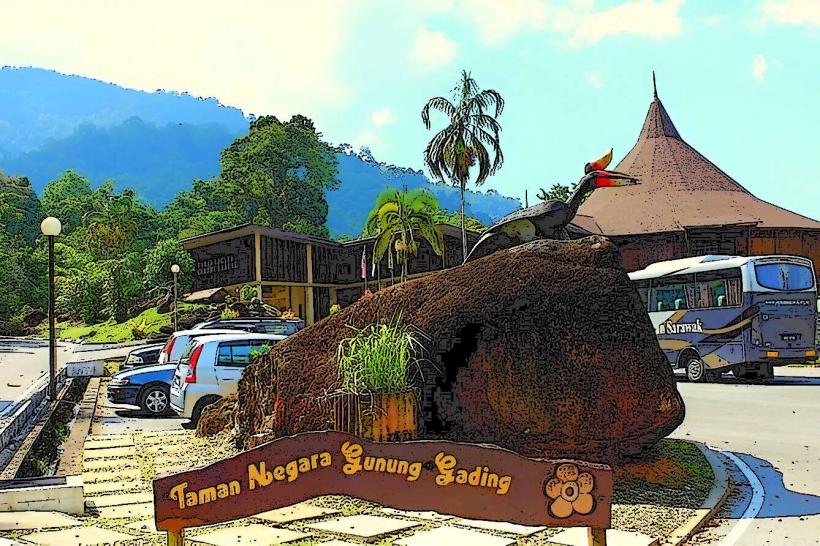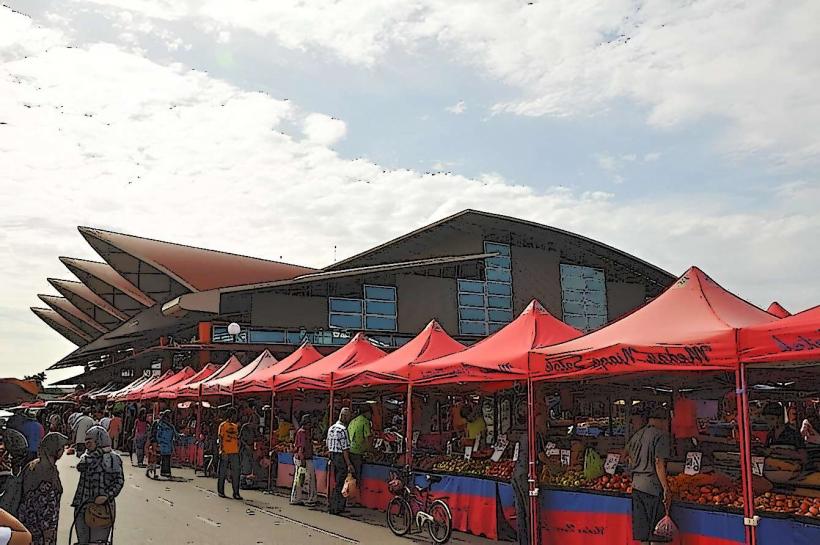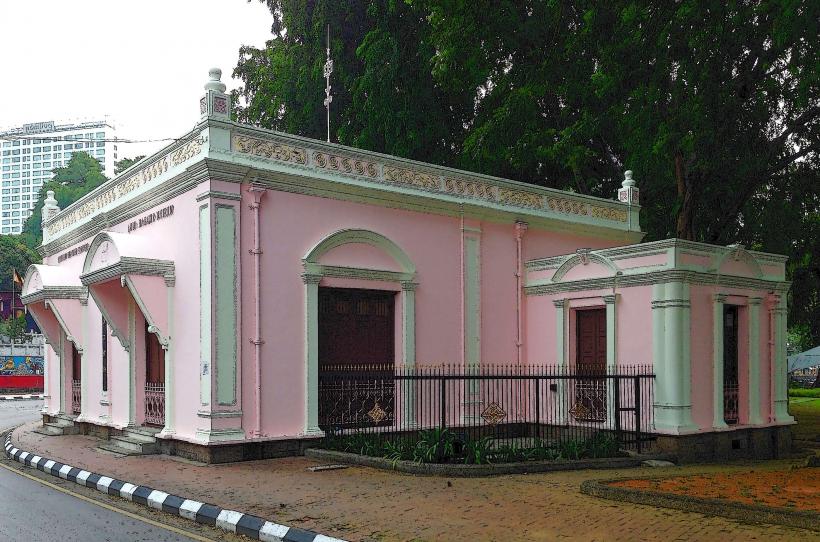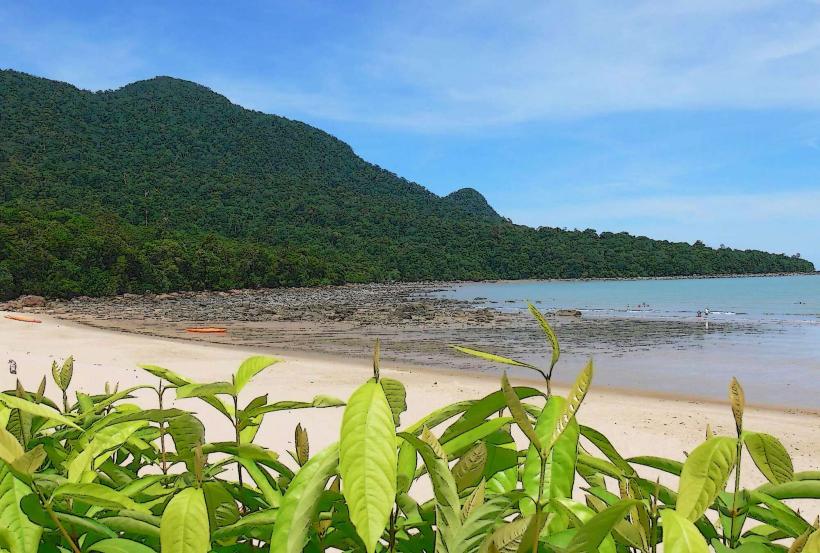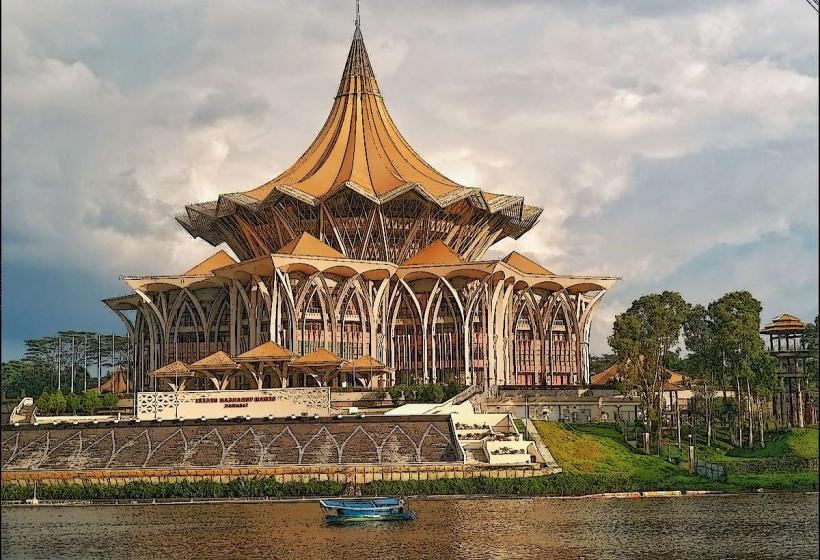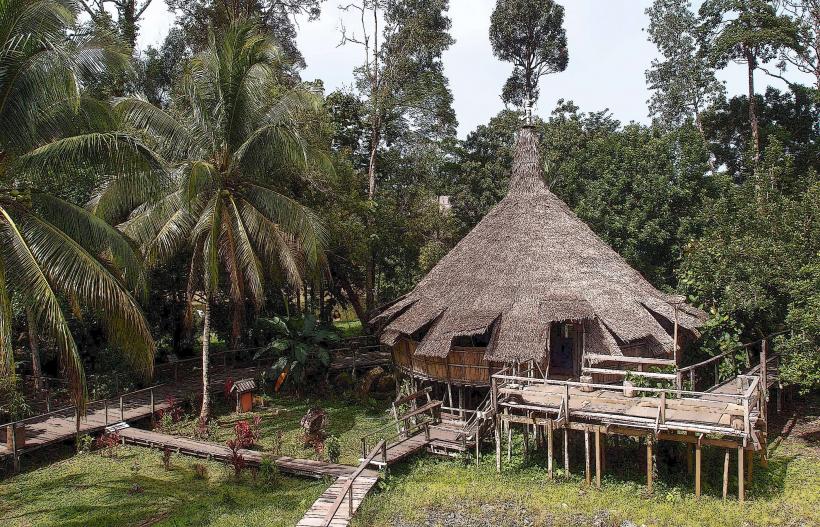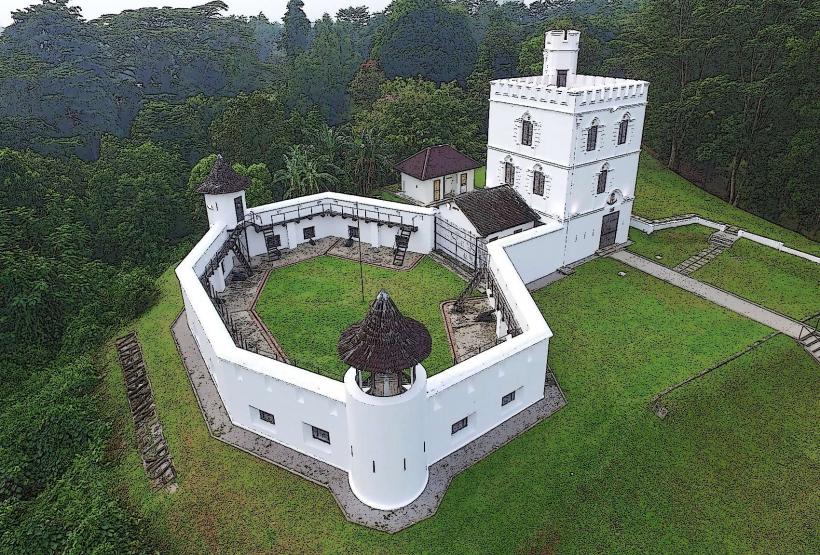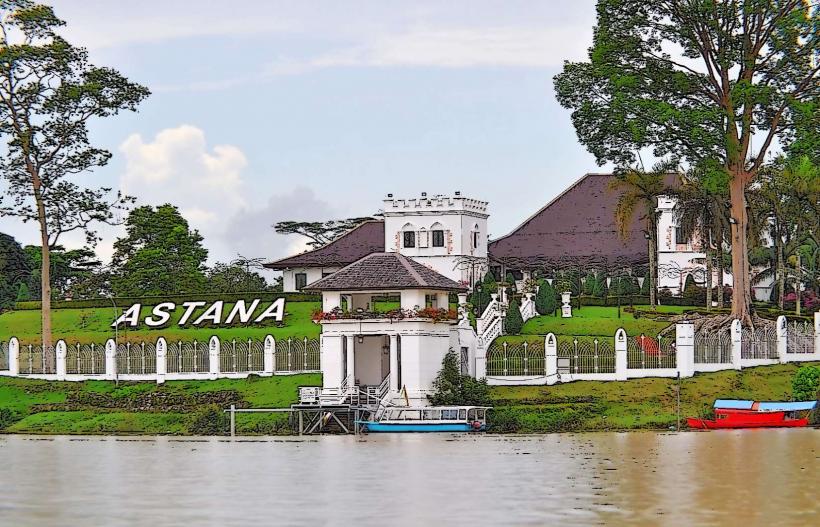Information
Landmark: Bako National ParkCity: Kuching
Country: Malaysia
Continent: Asia
Bako National Park, Kuching, Malaysia, Asia
Bako National Park is a protected area located on the Muara Tebas Peninsula, approximately 37 kilometers north of Kuching, Sarawak, Malaysia.
Visual Characteristics
The park features a coastline with sandstone cliffs and rock formations, interspersed with small beaches. Vegetation ranges from mangrove forests along the coast to mixed dipterocarp forests inland. Several streams and small waterfalls are present within the park's interior.
Location & Access Logistics
Access to Bako National Park is via a 45-minute bus ride (Bus Route 1) from the Kuching Waterfront to Kampung Bako. From Kampung Bako jetty, a 20-minute boat transfer is required to reach the park headquarters. Boat transfers operate on a shared basis and are subject to weather conditions. Parking is available at Kampung Bako jetty.
Historical & Ecological Origin
Established in 1957, Bako National Park is one of Sarawak's oldest national parks. It protects a diverse range of ecosystems representative of Sarawak's coastal environments, including mangrove, kerangas (heath forest), and mixed dipterocarp forests. The park's geological formations are primarily sandstone, shaped by erosion over millennia.
Key Highlights & Activities
Hiking is a primary activity, with marked trails of varying difficulty. Specific trails include the Lintang Trail (loop, 4.3km), the Ulu Seropoh Trail (to a waterfall, 2.2km one way), and the Telok Paku Trail (to a viewpoint, 3.7km one way). Wildlife observation is common, with opportunities to see proboscis monkeys, long-tailed macaques, bearded pigs, and various bird species. Night walks are also offered.
Infrastructure & Amenities
The park headquarters provides basic facilities including restrooms, a canteen offering local food, and accommodation (chalets and dormitories, booking recommended). Shade is available along some trails and at designated rest areas. Cell phone signal is intermittent and generally poor within the park.
Best Time to Visit
The best months for visiting are generally from March to October, avoiding the heaviest monsoon rains. For proboscis monkey sightings, early morning and late afternoon are most productive. High tide can affect access to some beach areas.
Facts & Legends
A unique geological feature is the "Sea Stack" at Telok Keruin, a rock formation carved by wave action. Local folklore speaks of the "Princess Rock" near the park entrance, a rock formation said to resemble a woman.
Nearby Landmarks
- Semenggoh Wildlife Centre (25km Southwest)
- Sarawak Cultural Village (30km Southwest)
- Mount Santubong (32km Southwest)
- Tanjung Po National Park (40km Southeast)

